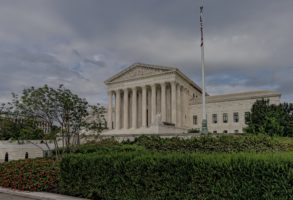
Published September 6, 2021
How did we get to this place in our national discourse on abortion where, instead of arguing about how to care rightly for women, children and families, we are screaming about the legal technicalities of “pre-enforcement challenges” and “sovereign immunity”?
Opponents of Texas’s new Heartbeat Act have unleashed overheated rhetoric impugning the motives and methods of the state’s legislators, criticizing the Supreme Court justices who last week declined to enjoin the law, and lamenting the impending end of abortion rights in America. House Speaker Nancy Pelosi (D-Calif.) called for federal codification of Roe v. Wade, and President Biden promised a “whole of government” response. Given the intensity of this reaction, it is worth reflecting on the Heartbeat Act, why is it designed as it is, and how we arrived in such a strange legal cul-de-sac.
Click here to read the rest of this piece at the Washington Post‘s website.
O. Carter Snead is a fellow at the Ethics and Public Policy Center, a law professor at the University of Notre Dame, and the author of “What It Means to be Human: The Case for the Body in Public Bioethics.”
Carter Snead, a Fellow at the Ethics and Public Policy Center, is an internationally recognized expert in the field of law and bioethics. His research explores issues relating to neuroethics, enhancement, human embryo research, assisted reproduction, abortion, and end-of-life decision-making.












